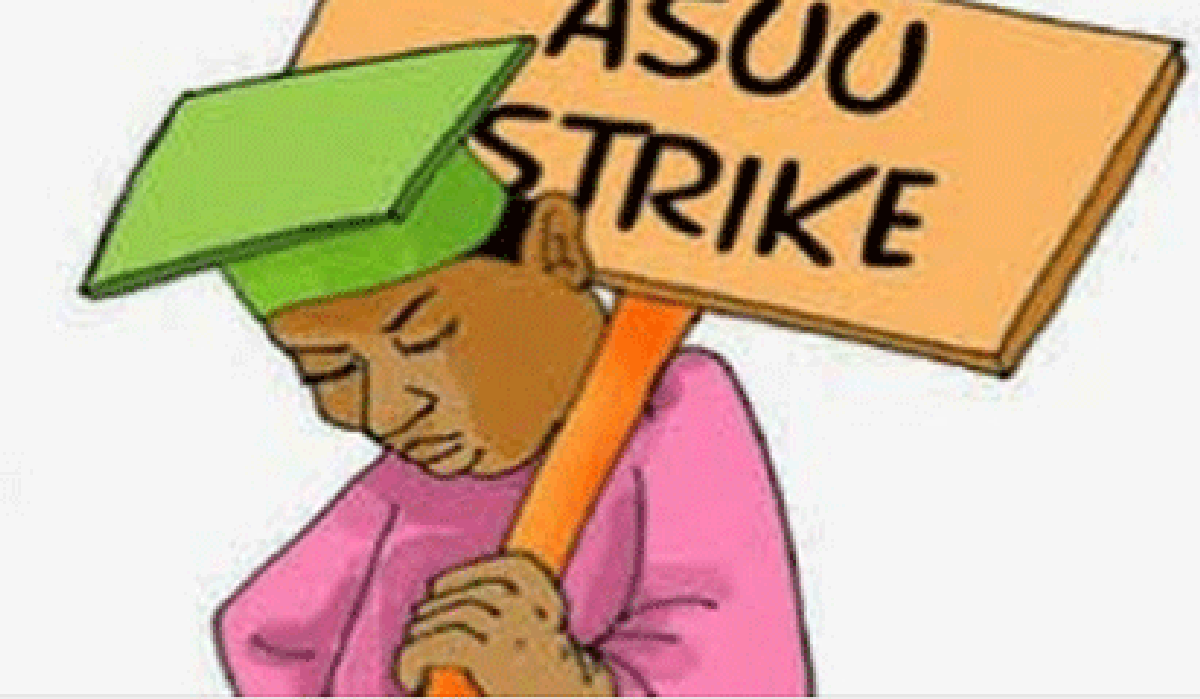Comments and Issues
ASUU: Manifest assaults from variants of anti-intelectuals
Published
3 years agoon
By
Olu Emmanuel
By Andrew A. Erakhrumen
It may be discomfiting but the truth, (our truth), must be told; that many Nigerians love quick fixes! This is a reason why they (we) have been going round in circles concerning their (our) challenges! For instance, the tempo of stakeholders’ clamour, for Nigeria to find sustainable solutions to the underlying challenges causing industrial disharmony in the country’s public universities, subsided within two weeks after Academic Staff Union of Universities (ASUU) suspended its strike on the 14th of October, 2022. It was as if Nigerians, owing to the suspension, instantly forgot about the unresolved issues. Now, the people whose actions/inactions led to, and sustained, the painful eight-month strike in public universities are at it again – as usual! They have stirred up a hornets’ nest in federal universities! Those ‘neonates’ engaging in infantilism and pettiness, brandishing a selectively persecuting and discriminatorily enforced “no-work-no-pay” policy have not only held on to the pittance they call seven months lecturer’s salaries but also paid for October on “pro rata” basis saying that the lecturers were paid for the number of days they worked in October! Lecturers are now casualised? Imagine the abysmal depth anti-intellectuals can shamelessly go! Buba Marwa seems right that public office-holders should undergo an integrity drug test!
“…..It should be clear by now…..that these…..crises…..are always contrived by those benefiting from them…..” Strike actions are erroneously seen as the problem rather than a symptom of deeper malaise requiring serious treatment. With sincerity of purpose, the issues causing industrial crises in our public universities are not unresolvable. The suspension of strike, in these public universities, is always a pleasant news item to stakeholders but, unfortunately, those who do not want lasting solutions to industrial crises are aiming at this through their childishly vindictive and illegal “pro rata” salary payments. Yes, the courts ordered striking lecturers back to work but can intellectual deliverables get to students this way? Is lasting solution(s) obtainable this way? No, to both questions! Negotiation table is the place to attain peace! This was buttressed by intervention efforts of well-meaning Nigerians, including the Speaker of the House of Representatives and his team, in the crisis. These efforts, even as the issues have been unsatisfactorily dealt with, reinforced the fact that effective dialogue and understanding during disagreement help in bringing about solution(s) instead of someone turning such a sensitive public issue to a personal quarrel like Attahiru Jega appropriately opined in one of the interviews he recently granted.
Instead of chasing shadows, it is incumbent upon the “notorious agents of the ruling class” (and ‘thieving’ servants in concerned ministries) to move swiftly in taking advantage of the “low-hanging fruit” with a view to sustaining negotiations that will forestall future industrial crises in public universities. It is noteworthy that experience has shown that ‘thieving’ uncivil servants and other faceless bureaucrats in government ministries deliberately strengthen unnecessary bureaucratic bottlenecks to frustrate consultations, negotiations and implementation of negotiated-agreements that are collectively-reached, for reason(s) best known to them! Moving forward, the poor people who are disenfranchised from obtaining quality education from well-funded public universities should stop staying aloof leaving the struggle for collective salvaging of these universities for ASUU. It is disheartening that some Nigerians wrongly blame the victim (ASUU) in the struggle to reposition the public universities! We ask: where are the other stakeholders in public universities? Where are the rights groups? Where are the non-governmental organisations? Where are the pro-democracy groups? Where are the students’ movements? Where are the professionals? Where are the intellectuals and intelligentsia? Where are the other (Nigeria) labour unions?
Where are the statesmen/women? Where are the leaders of positive thoughts? What of everybody? Will you allow “the labour of our heroes past” to be in vain? Why should we allow those that were nowhere to be found during the struggles for the restoration of civilian rule to destroy the little gains the country has achieved? Do we need to state that many of the people in government today were the ones frolicking with yesterday’s military juntas? There is no secret about this. They are well known. Then, is there any need to look too far for the reason(s) behind their anti-democratic and anti-intellectualism posture? It is increasingly manifesting, with their (mis)demeanour, that truly one cannot give what he/she does not have. Some people may not know this; they want to disenfranchise the children of the poor and breed another group of future oppressors among their children and protégés! This is causing clash of ideology between them and ASUU! Painfully, many of these people (some in government) rose from the crushing ashes of poverty to where they are, today, through public-funded education but (as ingrates) are now advocating for cruel commodification and commercialisation of the publicly-owned educational facilities.
Nigerian governments are good at irresponsiveness and irresponsibility. They demonstrate these by appropriating peanut as funding for public education sector. The bulk of this peanut, which proportionally diminishes every budget year, is spent in the ministries by the ‘thieving’ servants. Nobody is, and should be, against funding from sources different from governments’ coffers. Nonetheless, what we are clamouring for is the initial massive, well-monitored government investment that will assist in attracting other local and foreign investments. Historically, those universities (even in Africa) that Nigerian students are now gravitating to did not get to the level they currently are without initial government funding! Access to universities may not be enough but those interested based on merit should not be discouraged. If they have to pay more, then they must get value for their investment. They should not be treated the way electricity consumers in Nigeria are being treated by the fraudulently-privatised power sector: where consumers pay for electric meter; they pay for electric transmission poles; they buy and maintain electric transformers; their transmission lines are consumers’ responsibility! In fact, some people (within the same ruining elite) without any prior tangible investment took over electrical power sector to fleece Nigerians!
The catastrophe being experienced through the Nigeria’s ‘privatised’ power sector is the kind that is expected if we fail to sit down, now, to agree on clear terms that will generate sustainable funding structure for public universities. In summary: governments should not be allowed to hand universities that are ‘empty shells’ over to poor Nigerians the way they have done, successfully, with public primary and secondary schools. If there can be government bailout for private entities such as banks, airlines, among others, why cannot there be such massive bailout for public universities? As it stands today, you will not find the children/wards of those running Nigeria aground in any public tertiary institutions in the country! So, they really have nothing to loose if these educational facilities collapse completely. This is why we will continue to ‘shout’ and encourage other well-meaning Nigerians to join us in this advocacy. The more, the higher will be the decibel of “redemption songs”. The more, the merrier! Well now, ASUU and its members have suffered so much for their consistent patriotic struggles for a better university system and by extension, Nigeria in general. Members of ASUU will not die in this quest so also will ASUU’s case be! The Union and its members will benefit from a country we all earnestly desire a better future for!
*Andrew A. Erakhrumen currently teaches at the Department of Forest Resources and Wildlife Management, University of Benin, Benin City, Nigeria.
Trending

 Health1 week ago
Health1 week agoDeclassified CIA memo explored concealing mind-control drugs in vaccines

 Crime1 week ago
Crime1 week agoSenior police officers faces retirement after Disu’s appointment as acting IGP

 Latest7 days ago
Latest7 days agoFubara pledges collaboration with APC lawmakers after Rivers by-elections

 Health6 days ago
Health6 days agoGroups launch ‘COVID Justice’ campaign, urge U.S. Senate to adopt accountability resolution

 Football6 days ago
Football6 days agoJuventus prepare €120m bid for Osimhen as summer rebuild plans gather pace

 News1 week ago
News1 week agoFamily demands coroner’s inquest into death of Chimamanda Adichie’s son

 Latest1 week ago
Latest1 week ago2027 race: ADC battles setbacks, arrests, internal strains as opposition fortunes waver

 News1 week ago
News1 week agoMother, son escape death as Lexus SUV overturns three times in Lagos

